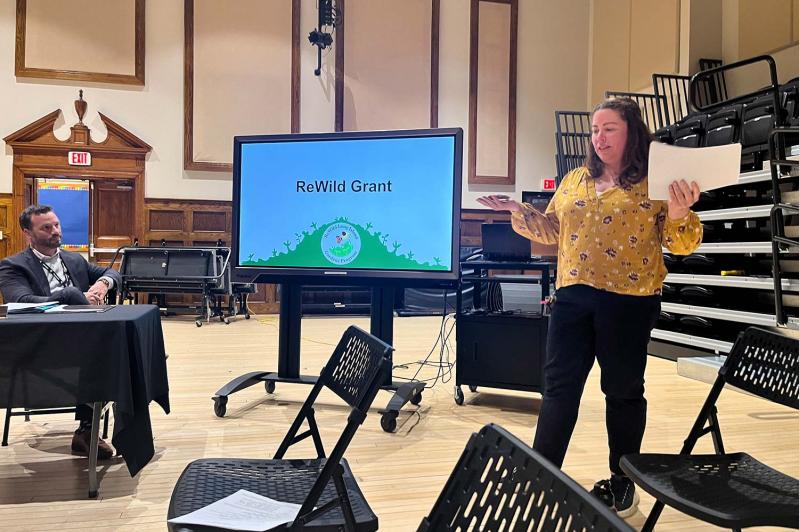Students and teachers at the Bridgehampton School will soon see more bees buzzing about the campus, fitting for a school whose mascot is the bee.
Through a partnership with ReWild Long Island, a nonprofit organization that promotes “sustainable landscaping for biodiversity and climate resilience,” according to its website, Bridgehampton is in the early stages of planning a new pollinator garden.
“It’s an opportunity for students to learn about the importance of a pollinator garden and biodiversity,” said Alexandra DeSouza, a science and agriculture teacher who is taking the lead on the project. Students “are drawn to nature. It will be nice for them to have another space to enjoy.”
It would also function as an outdoor classroom, with teachers able to take their students out for lessons and fresh air.
ReWild Long Island has its roots in Port Washington on Nassau County’s North Shore, where in 2017 an environmental analyst, David Jakim, identified the need to “rewild” outdoor spaces for wildlife on the Port Washington peninsula, which led to a gathering of concerned citizens at the Port Washington Library. “ReWild Long Island was born out of that meeting to increase biodiversity in both public and private spaces using native plants,” according to its website. It became a nonprofit organization in 2019.
According to Ms. DeSouza, the ReWild-Bridgehampton partnership is to be largely run by students. Kids in certain age groups will work together to design the garden, select the plants, do the planting (with help from ReWild volunteers), and care for the plants. There will be training sessions this summer, so the kids can hit the ground running in the fall.
In exchange for ReWild’s help, Bridgehampton has agreed to commit a minimum of two years of participation as well as the water source needed to help the garden grow. A few other rules apply: At least 50 percent of the plant species must be native to Long Island, leaf blowers and harsh commercial fertilizers are not permitted, dead leaves and plant material must be left in place over the winter to provide habitat for wildlife, and periodically the space should be used for events that are open to the public.
ReWild will provide free plants, signs to go with them, design and installation help, and publicity.
The organization has chapters on the North and South Forks now, and has done programming at East Hampton High School. Last year it joined with East Hampton Town for a composting program, and this year it has awarded a grant to Montauk’s Third House Nature Center.
Nancy Erber, who leads the South Fork chapter with Leonard Green and Gloria Frazee, said by email that “ReWild’s mission for the program is ‘creating sustainable garden communities.’ “
The Bridgehampton School Board was enthusiastic about the partnership during its meeting on March 20. Ms. DeSouza showed a video in which students shared their thoughts on why having a pollinator garden at the school would be great.
“How could we say no to that?” asked Carla Lillie, a board member.

